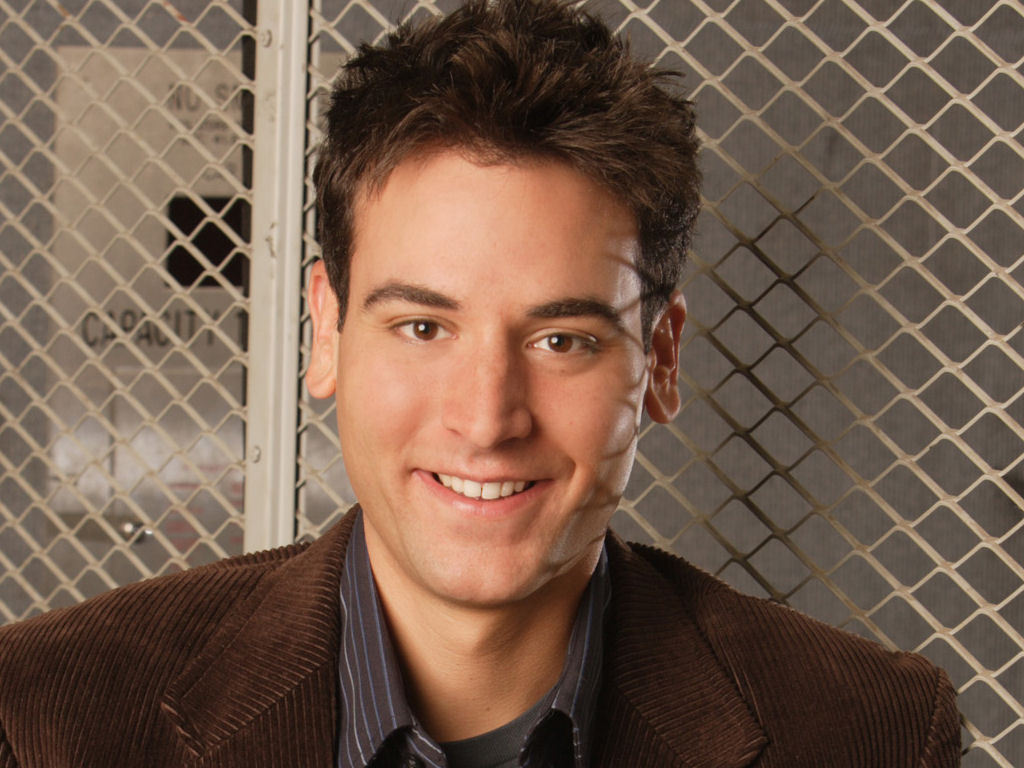 Back to selection
Back to selection
Five Questions with Liberal Arts Director Josh Radnor
The hurdles of independent filmmaking–or any creative endeavor–don’t end with a successful debut. If anything, the pressure to live up to the expectations on the heels of a breakthrough looms heavier than ever in the dreaded “sophomore slump.” Following Happythankyoumoreplease, Josh Radnor manages to not only avoid said slump, but also seamlessly captures the voice of a generation; floating between idealistic youth and the discontentment of fitting into adulthood. It’s even more impressive when considering that Radnor is already an established actor on his own hit television show. While utilizing his own alma mater, Kenyon College, at the heart of Liberal Arts, the How I Met Your Mother star pulls rank as a director, writer, and actor, and establishes himself as a unique storyteller bringing a distinct voice to an old formula.
Liberal Arts, which debuted at Sundance to a standing ovation earlier this year, offers a glimpse into dissatisfied post-graduation life as Radnor plays Jesse, a youthful 30-something desperate to be inspired by the life around him. He leaves the detached buzz of New York for Ohio to attend a retirement ceremony for one of his favorite professors (Richard Jenkins). While there, Jesse meets Zibby (Elizabeth Olsen), a precocious, free-spirited but emotionally accelerated student who helps him find the joy in life while simultaneously teaching him what it means to be a morally sound adult. Liberal Arts proves that the intellectual exchange of ideas can be discovered and referenced buoyantly without being shrouded in a pretentious veil. Prior to the film’s theatrical release, Filmmaker sat down with director/writer/actor Josh Radnor to discuss Liberal Arts.

Filmmaker: You and Elizabeth Olsen have some really great moments together. Was that something that came naturally or did you have to find that rhythm?
Radnor: You’re looking for something natural while casting a movie. Chemistry isn’t something you want to point out if it’s there. You just want it to be there, and if a script is well written, and truthfully written, and if the right person shows up on both sides to play the scene, there will be chemistry there. Even if the characters are fighting, there’s going to be a great kind of chemistry there because everyone is appropriately inhabiting the part. That’s what I felt what was happening with us. Lizzy is so perfect for the role, people think I must have written it for her. It’s weird, you start watching dailies but you don’t really know until you get the footage together and start looking at everything. There was a feeling on set of “Oh, this is working.”
As for the script, I wrote it specifically to the character. I’m laboring over each “Ya know” or “Um” and it’s very specifically played. When a character pauses, for instance, there’s a reason. My characters search around for the right way to say things. I think the script was appropriate for this movie because it was about words, and articulating different concepts and ideas.
Filmmaker: How did you balance being a writer and a director in Liberal Arts?
Radnor: It depends on what is in front of me that needs to be looked at. If I’m watching playback, I need to watch my performance and see that we got what I needed. It’s rough, but editing myself in movies and watching myself on playback kind of got me over being horrified. I’m sure when you hear yourself on tape, you say, “I didn’t think I sounded like that.” You go through that a bit as an actor. The first time on camera, you think, “I didn’t think I looked like that” but I’ve sort of gotten over it. It’s not that I have an opinion good or bad, I just know that’s what I look like, but I also know I’m capable of just as much bad acting as anyone. The great thing about editing yourself is you get to sift through all the footage and see what puts you in the best light. I’m holding all of those things in my head all at once. I’m looking at the moment and the take, and I’m also holding the whole picture as both a writer and a director.
Filmmaker: Do you think How I Met Your Mother influences what kind of work you want to create as a director?
Radnor: The films are very tonally different, but there’s some thematic overlap, a little bit. I care about similar things as the writers of How I Met Your Mother, it’s just a different style or take on them. Film allows me to ask really big questions, and have some time and space to explore them a little more deeply. I love the form of it. When I write a film, there’s a very particular thing I’m wrestling with. The question or the concern I’m dealing with has to be big enough for me to dedicate a year or two of my life to it. If the question isn’t big enough or rich enough, I’ll lose interest in it. For me in this go round, I had a very specific idea, and it felt like fertile material for starting something, and the more I worked on it, the professor started coming into focus, Allison Janney’s character, and Dean [played by John Magaro], it started to go deeper into the exploration of aging, and growing up and not growing up, and accepting change — all of these things that are interesting to me. It all started to hold.
Filmmaker: The characters really reminded me of the people I met in college. Did those archetypes come from your own experiences?
Radnor: It’s kind of like you’re writing, and you’re both imagining things and then also suddenly you’ll write something and say, “Oh, I’m kind of writing this.” You don’t realize you’re doing it, but I threw myself into a college mindset. I had a friend who had a manic episode when we were in school, so that was a little bit of the Dean stuff that started to come in. I loved my British Romantics Literature professor, his name was Ron Sharp; we didn’t have an affair, but that thing with Jesse loving romantic literature was ripped from my biography. Little things kind of find their way in, but largely it’s imagined.
Filmmaker: Would you have been able to write this script 10 years ago?
Radnor: I don’t think I would have been drawn to writing a movie about getting out of college at 25, as I was at 35, because it’s different. I think, in some ways, at 25 I was in the midst of mourning in college, and getting out of college in the same way Jesse was. I wouldn’t have had perspective on it. I kind of kicked that college nostalgia in my late twenties, so I’m certainly not feeling it now, as much as I loved the experience and treasure it. I don’t want to go back.

